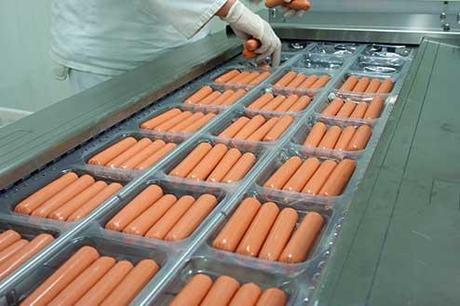Bring more to the table by working with one contract packer
They say some problems are “good” problems. Like a new product introduction that takes off beyond your company’s wildest dreams or seasonal demand far outstripping expectations. While these “good” problems indicate robust business activity, they’re still problems. And they can quickly turn into “bad problems” if you don’t have enough packaging capacity to keep up with consumer demand.
Sometimes, no matter how well you plan, you find yourself scrambling for contract packing capacity.

Mistake #1: You did not line up enough capacity
Here is one of the cardinal sins of food manufacturing packaging: not planning for enough capacity. You want to make sure your customers get the products they want, when they want them.
How to avoid it: Make contract packing a key element of fiscal year planning so you can satisfy customer demand, handle regional production for new test markets and support the nationwide launch of new products. Factor these issues into your fiscal year planning: a flexible labor pool, multiple processing lines, adequate co-packer resources; flexible capital and a variety package formats.
Mistake #2: You’re juggling lots of smaller co-packers with limited capabilities
It’s tough to find a contract packer that can support multiple packaging lines and formats. As a result, some food and beverage manufacturers end up with a mosaic of 10 or 20 small contract packers, each of which has only a few processing lines and can only handle one or two packaging formats: e.g. bags or cartons but not both. Managing multiple co-packers doesn’t just eat up a lot of time – it’s costly. It’s estimated that starting up a new contract packer costs clients anywhere from $50,000 to $100,000 depending on the complexity of your business.
How to avoid it: Choose a co-packer with multiple packaging platforms and processing lines. It’s much easier to manage one provider than 20. Above all, choose co-packers that don’t overbook like airlines (some book their plants at 120 percent, so when you need an extra shift, it’s not available).
Mistake #3: You’re not safeguarding food safety and quality
Protecting the nation’s food supply has become a key issue. Too many packaging facilities don’t have a Food Safety Management System (FSMS) in place to manage food safety risks.
How to avoid it: Work with a co-packer that is SQF (Safe Quality Food) level 3 certified – a management system designed to focus on food safety and minimize the risk of recalls that force you to throw products away, short customers on orders, and delay the entry of a food product.
Mistake #4: You don’t know how much inventory you have
If you’re working with a co-packer with sloppy inventory records you’re adding unnecessary risk to your supply chain. For example, you thought you had a truckload of product available, but in reality, you have one pallet, so you can’t fill customer orders. Material planning and inventory problems like these create costly bottlenecks. You pay twice as much to get products to market due to schedule shifts, overtime, rush orders, and premium or expedited shipping.
How to avoid it: Choose a contract packer that maintains accurate inventory records and preferably has LEAN processes in place.
Mistake #5: You didn’t set up a contingency plan
Disasters happen and they come in all shapes and sizes. So what do you do if your packaging facility burns down, flattened by a tornado or wiped out by a hurricane? Without a contingency plan, production grinds to a halt – and millions of dollars worth of product can be destroyed.
How to avoid it: Partner with a co-packer with supplemental facilities, flexible labor and third-shift operations that can swing into action if or when disaster strikes.
Not planning for packaging can create all kinds of issues when “good problems” like a wildly popular product, seasonal demand or test launch tax your resources. Want to make smart decisions about packaging?
Make sure you’re able to access the resources and capacity you need in the right format, in the right place with a network of co-packers that can swing into action at any given time.
Dwight Sevaldson is Director of Business Development for Ryder System, Inc. In his current role, Dwight is responsible for helping food manufacturers find ways to optimize their contract packing and supply chain operations. Dwight brings over 30 years of experience in the food manufacturing space. Prior to Ryder, Dwight worked in a variety of plant management and corporate roles while with Quaker Oats. After Quaker, Dwight held a variety of contract manufacturing management roles at General Mills, Wrigley Gum, Coca-Cola, Minute Maid and Quaker/Gatorade.

